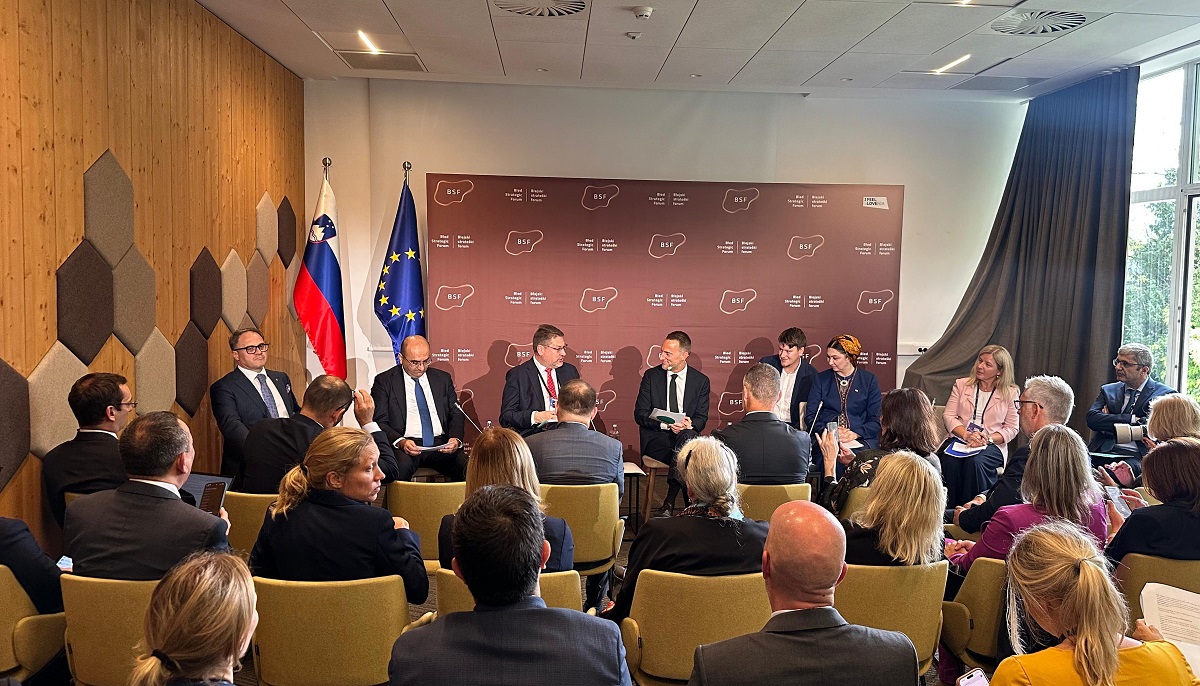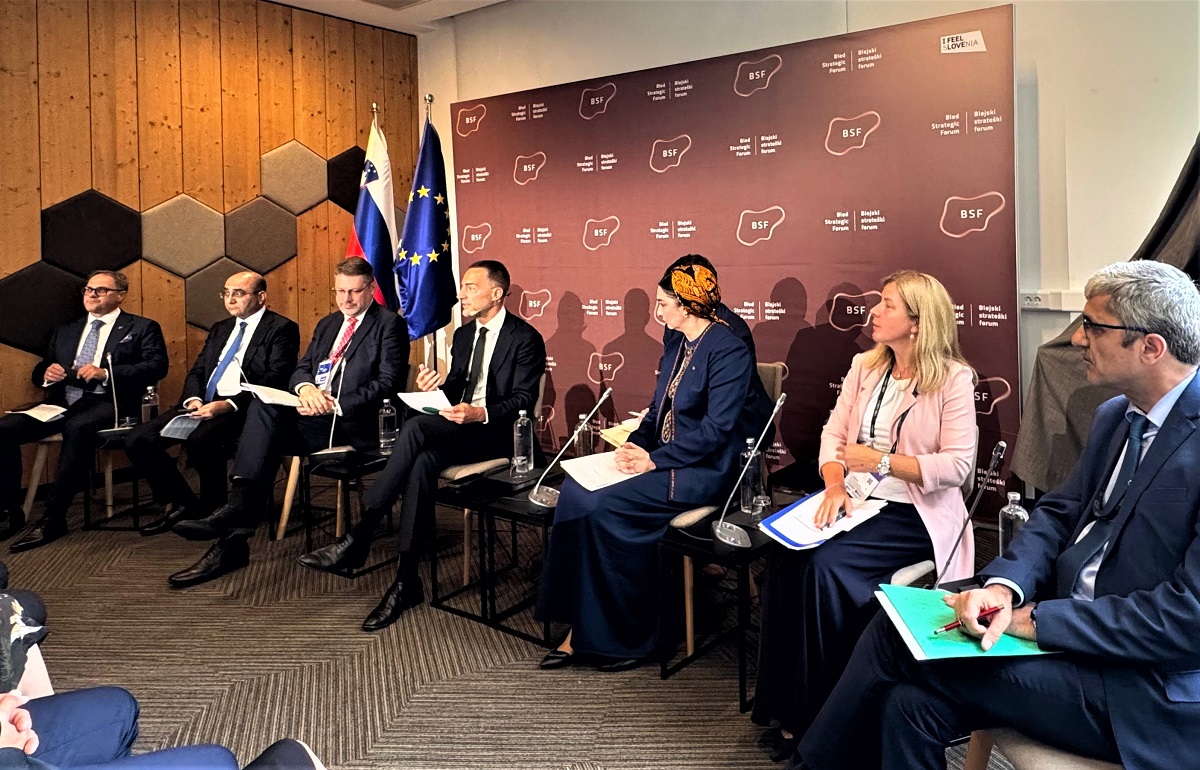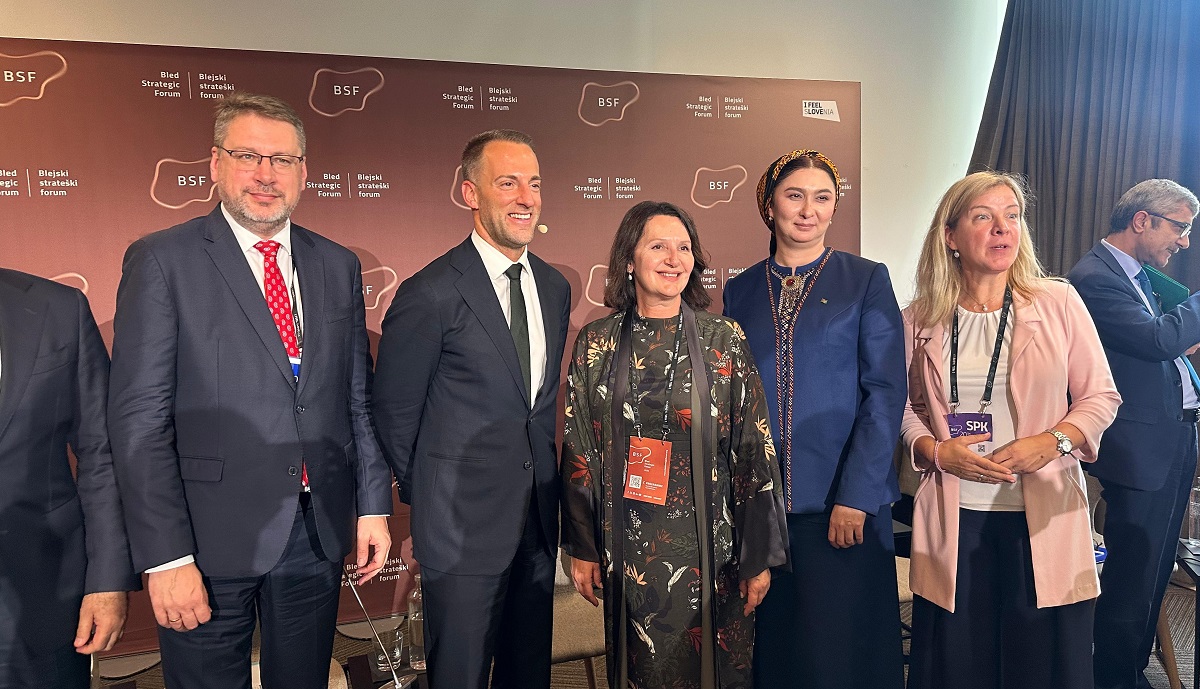Central Asia and the EU: Paths to strategic partnership on the agenda of the Bled Forum
03.09.2025 | 02:45 |A key discussion on expanding cooperation between the European Union and the Central Asian countries took place in the picturesque alpine setting of Lake Bled, Slovenia, where the prestigious Bled Strategic Forum takes place every year. The Forum, the leading international conference in Central and South-Eastern Europe, traditionally serves as a platform for exchanging views and finding solutions to pressing global issues.
The round table “The Centrality of Central Asia” brought together Deputy Foreign Minister of Turkmenistan Myahri Byashimova, Deputy Foreign Minister of Uzbekistan, representatives of delegations from other Central Asian states, and the EU Special Representative for Central Asia Eduards Stiprais.

The participants discussed a wide range of issues related to the interconnectedness of the region – from the development of transport corridors to energy connectivity, digital solutions and strengthening people-to-people contacts. It was emphasized that Central Asia plays a key role as a strategic bridge between Europe and Asia and has the potential to become a driver of Eurasian integration.
Turkmenistan's neutrality as a tool of trust
Deputy Minister of Foreign Affairs of Turkmenistan Myahri Byashimova emphasized in her speech that the country's neutral status, three times recognized by the UN General Assembly resolutions, is not a limitation, but an effective tool of trust and open interaction.
"The policy of positive neutrality allows Turkmenistan to take an active position in regional and international processes, build constructive relations and contribute to peace and stability," she noted.

The Turkmen side presented information on large-scale investments in the transport sector, including the development of the modern international seaport of Turkmenbashi, which has become a multimodal "gateway" of Central Asia to the Caspian region and further to Europe. Particular attention was paid to ongoing initiatives on transport connectivity, such as the launch of the Coordination Platform of the Trans-Caspian Transport Corridor in Ashgabat, the results of the 20th EU-Central Asia Ministerial Meeting and the first EU-CA summit.
Energy diversification and the "green" track
In the energy sector, the Turkmen diplomat emphasized the country's contribution to the diversification of routes, the development of new formats of cooperation, including gas swaps, and the promotion of the "green" track of interaction. It was noted that Turkmenistan is actively introducing renewable energy sources and links cooperation with the EU with the climate and environmental agenda.
The participants of the round table expressed their commitment to further strengthening cooperation between the EU and Central Asia, the active use of existing mechanisms and the development of new formats of interaction in the interests of all parties. Turkmenistan, located at the crossroads of Eurasia, views its role as a strategic mission to ensure a sustainable and secure bridge between the East and the West, and is ready to share its experience of neutrality, transport solutions and energy cooperation.

The name "The Centrality of Central Asia" reflects the idea of the region's unique location and its growing importance in the international arena. This term emphasizes that the region is no longer just a transit space, but is becoming a key node in geopolitics and economics.
ORIENT











